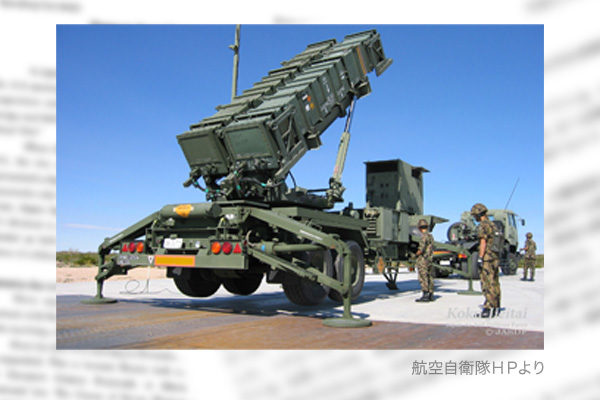On January 14, a Russian A-50 airborne early warning and control aircraft was shot down by a Ukrainian anti-aircraft missile over the Sea of Azov, southeast of Ukraine. Although the incident has not been widely reported in Japan, foreign media have described the day as a “dark day” for Russian forces. The military significance of the A-50 shooting-down is great.
The A-50, called “Mainstay” by the North Atlantic Treaty Organization, can detect flying aircraft within a radius of 650 kilometers and ground targets within a radius of 300 kilometers. It is an indispensable piece of equipment for the Russian military operations against Ukraine. The A-50, while rivaling the U.S. E-3 AWACS (Airborne Warning and Control System) for air targets, can cover ground targets as well. It is equipped with the functions of the U.S. E-8 Joint STARS (Surveillance Target Attack Radar System) aircraft dedicated to ground targets.
A-50 shooting-down could change the course of the war
According to Western intelligence sources, Russia had six to nine A-50s before the Ukraine war. Due to frequent breakdowns, however, these aircraft’s operation rate is said to be at less than 50%. In February last year, one A-50 was lost on the ground in a Ukrainian drone attack. A-50s are indispensable for military operations such as gaining air supremacy, ground attacks, and air-land coordination. They are precious for Russian forces because they are small in number and expensive. The loss of another A-50, not to mention the loss of around dozen veteran crewmembers, should be a major blow to the Russians.
Ukrainian forces have two fatal weaknesses: inability to gain air supremacy and heavy dependence on foreign arms and ammunition supplies.
About 40 F-16 fighter jets will be provided to Ukraine by NATO countries in the coming summer. If becoming operational for Ukrainian forces, they may cover a weakness of Ukrainian forces and change the war situation significantly. Russia will try to destroy the F-16s on the ground before they become operational. The A-50s are indispensable for this operation.
While arms and ammunition supplies from the United States have been stopped due to a congressional funding stalemate, the European Union has decided to provide Ukraine with aid worth 50 billion euros over four years. It is a common practice in military operations to destroy aid supplies on the ground before they arrive at the battleground. The A-50s are essential in such operations as well.
The latest shooting-down will make it more difficult for the Russians to operate the A-50s around the clock, potentially creating gaps in surveillance and vigilance. Naturally, Ukrainian forces will try to take advantage of the gaps, providing a ray of hope.
Indirect military support that Japan can provide
Japan should now provide strong support to Ukraine in order to magnify this ray of hope. First, Japan should significantly increase U.S.-licensed production of surface-to-air PAC-2 (Patriot Advanced Capability-2) missiles and continue their exports to the United States. The export to the licenser of licensed products became possible under the revision of the operational guidelines for the Three Principles on Transfer of Defense Equipment and Technology late last year. By exporting PAC-2s from Japan to make up for a U.S. military supply inventory decline caused by assistance to Ukraine, Japan can provide indirect military assistance to Ukraine. The indirect provision of shells should also be considered.
The war in Ukraine represents Russia’s attempt to change the status quo by force, or a clear war of aggression. If successful, it could lead to the collapse of international order and potentially encourage China’s invasion of Taiwan and aggression against Okinawa as well as the Senkaku Islands. Japan should consider all possible support for Ukraine to ensure that Russia will not prevail.
Kunio Orita is a member of the JINF Planning Committee and a special professor at Reitaku University. He is a retired Lieutenant General of the Japan Air Self-Defense Force.


